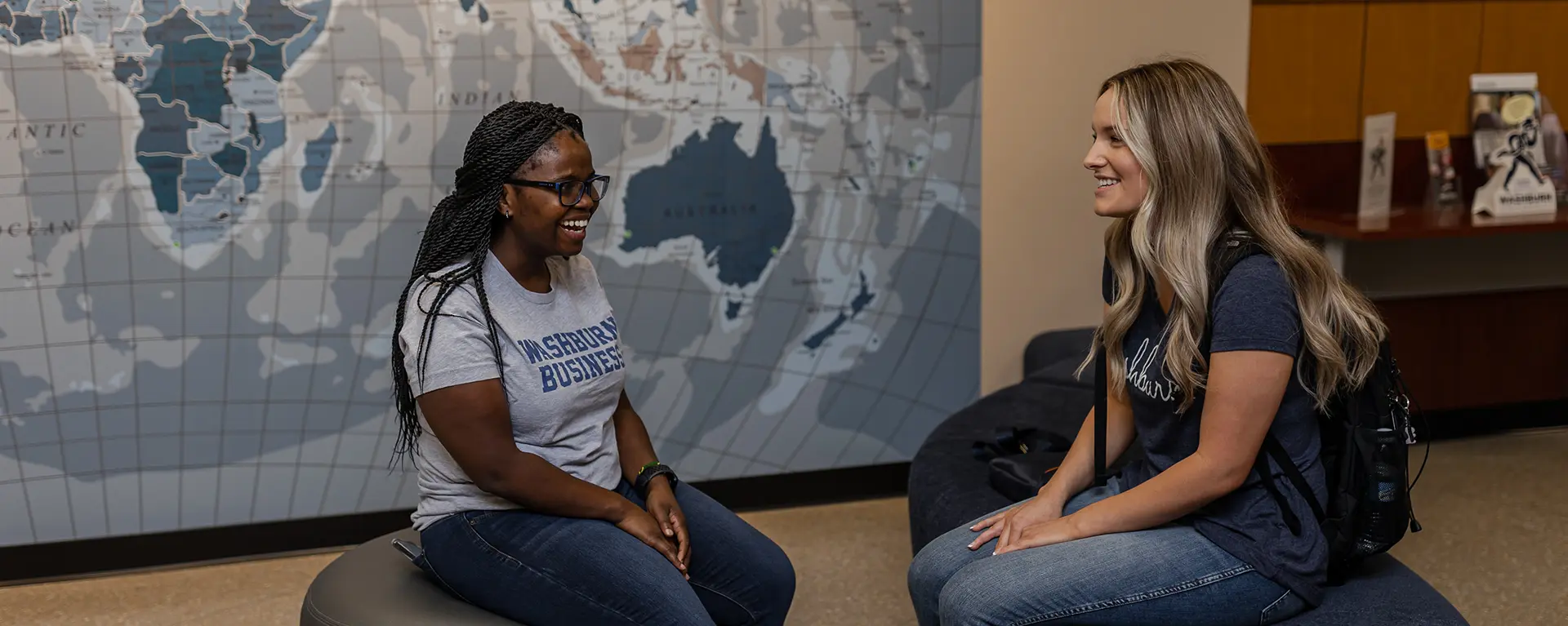
Study Abroad FAQ
1. Do I need a visa?
This depends on the country and the length of your stay. For the majority of destinations, you don't need a visa but you do need a passport. If you are an American citizen, you need a visa to enter China or Russia. If you are going to study in France for a full semester, you also will need a visa. Semester-long programs in the Netherlands require obtaining a residence permit. Such occasions call for additional paperwork and expenses. The knowledgeable staff at the Washburn Office of International Programs will be happy to provide you with all the specifics. Keep in mind that, the visa issue aside, you do need a passport.
2. Do I need to speak a foreign language to study abroad?
No, all the instruction is in English. As for the ability to get around outside school, it depends on the country, but in many countries it is becoming easier and easier to get around using English only. Some schools offer optional language short courses; some require that exchange students take such courses.
In any case, we believe that you should use this opportunity to pick up at least some useful conversational phrases which will make your experience abroad more enjoyable overall.
3. How do I support myself while I am there?
You will not be allowed to work so you will have to rely on your savings, student loans, scholarships received, and credit cards. Proof of sufficient funds is required prior to the trip. Your ATM cards will work there but there is a sizeable withdrawal fee (sometimes up to $5) so some prefer to withdraw a larger sum of money at once.
4. Will I be able to travel around?
Absolutely. Within most of Europe, you don’t need a visa. Train is the most widely accepted mode of transportation among students. Airline tickets within Europe can also be affordable if purchased in advance. Gasoline is more expensive than in the U.S., which makes travel by car a less economical choice.
Keep in mind that many locations in Europe are closer than you may think, so even on weekends you may see quite a bit. Plus, many schools’ academic calendars have extended weekends and week long semester breaks which offer an excellent opportunity to see more remote locations.
5. Will I be the only American student there?
Far from it. The locations we send our students to have established themselves as centers of international education. Therefore, those schools have far more international students than, say, Washburn has. There will probably be quite a few American students, but you will also be able to make friends with people from all over the world.
6. Will my cell phone work?
For the cell phone to work overseas, it has to support the GTM standard and be a “tri-band” phone (i.e. support three different frequencies). Even if it does, keeping your current plan will be very expensive due to large overseas charges. Contact your provider for details. A practical solution is to buy a prepaid SIM card once you are there (and a phone, if yours doesn’t work).
7. My friend is not a business major but we want to go abroad together. Is that possible?
In principle, yes. Several schools we have partnerships with offer classes in different disciplines, not just business. Once we look at your transcripts and plans of study, we will try to find a school that may suit the needs of both of you.
Have more questions? Email Prof. Dmitri Nizovtsev

